Port Vila, Efate

Lochmarin
Tue 15 Sep 2015 04:38
 Port Vila mooring field with a not-yet-open resort on the island on the right. 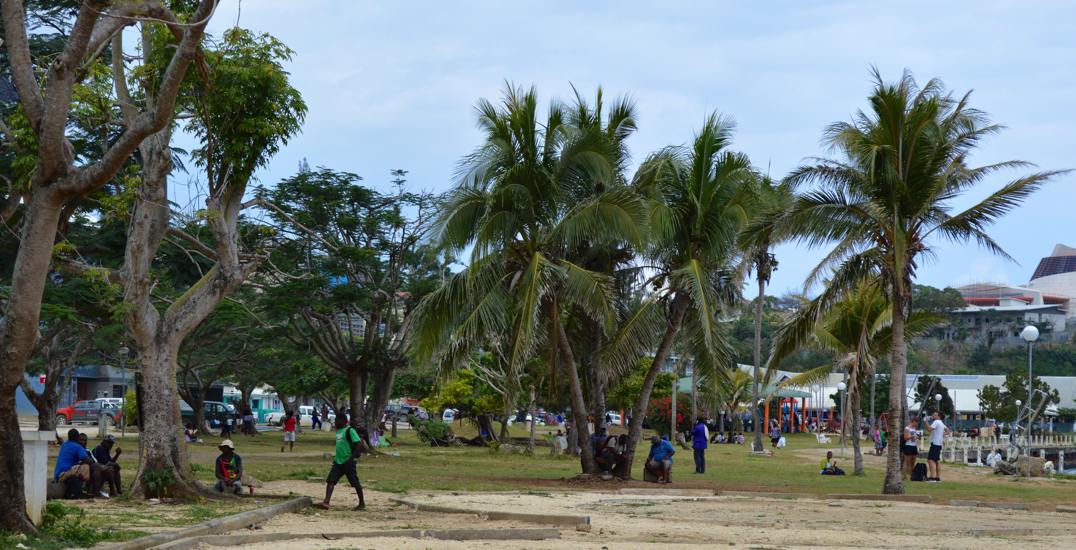 Folk going about their business in the park on the sea front. I knew we’d love Port Vila as Tom and Susie from Adina had spent the cyclone season there and had loved it, and indeed it was charming. There’s a real bustle about it, you can hardly cross the street for the stream of buses and taxis, yet there’s also an underlying slow feel, people have time: time to talk, to smile, to say hello. For example, when we went to get gas the gentleman who filled our bottle wanted to know where we come from, how many children we have and was glad to tell us which village he’s from and how many children he has in return. There are duty free shops and surf fashion shops a plenty, catering to the cruise ship tourists who flood the place every few days, filing the pavements with red necks and white thighs, but the market is the heart of the town, and it’s fabulous! Stall after stall of wonderful veg grown in the gardens around the island. The market ‘Mamas’ tend the stalls, often staying for 5 days before returning to their homes for a few days, re-stocking supplies, then coming back to sell. They sleep on mats under the tables and have small children along with them, playing and crawling and bawling amongst the stalls. There are clothes stalls and a bakery and a whole area devoted to cooked food: kitchen areas with tables and benches where you can have a huge meal of chicken, beef stew or fish with rice and vegetables for only 400VT (about 4 American dollars). 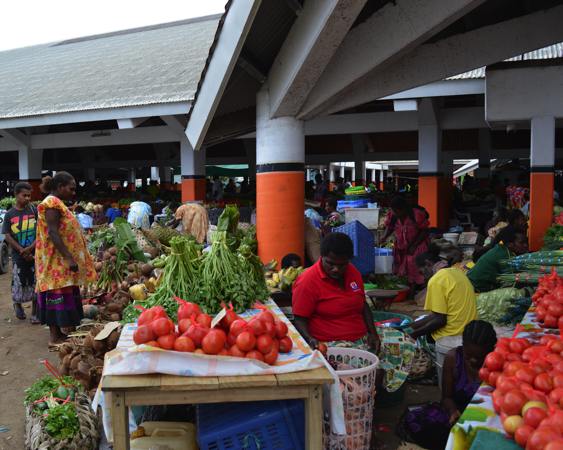 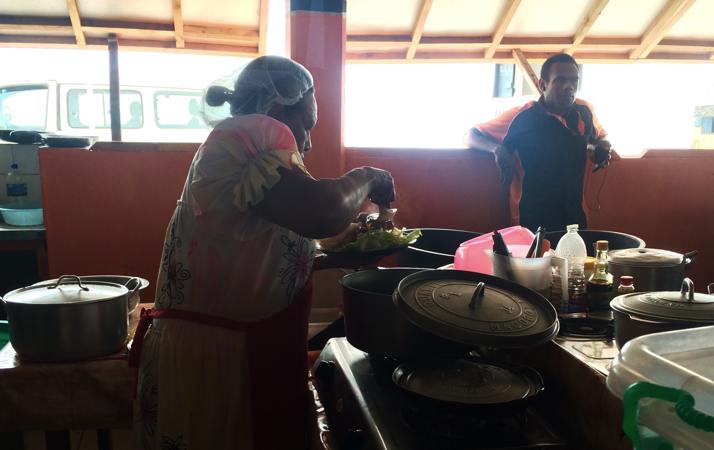 Tomato, Aelan Kabis, kumula and more for sale here and a market Mama serving up. 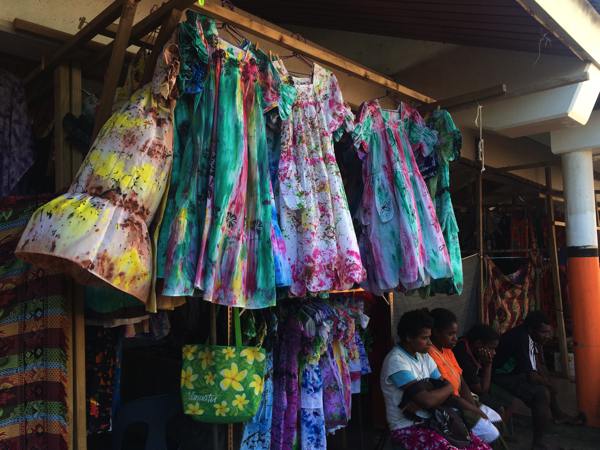 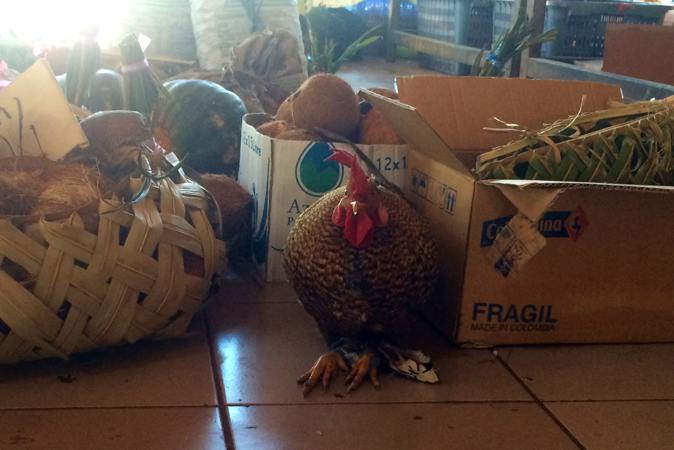 Mother Hubbard dresses, 90% of the women in Efate wear them, all made to exactly the same pattern, but made out of different materials, and I don’t think this chap really wanted to be sold alongside the melons and coconuts... One thing that we really noticed was all the advertising and notices in Bislama, we’d not seen much written down in pijin before and it’s a charming language. Easy to understand if you read it out loud, but hard to guess what the Bislama for something is going to be if you don’t know already. We got a couple of local sim cards for our iphones and started getting wonderful text messages exhorting us to take up ‘spesel SMS offa' for a limited ‘taem nomo’, great to try to learn Bislama from! Here’s one that I quite enjoyed:  Roughly translated: Download the new Digicel top up App today and be able to top up your phone when you are any where in the world! Free App for Android …. (Down loadem new-fella Digicel top up app today and save (know how to) top him up phone belong you any place in world. Free app for Android…) Another that touched my heart was this one: 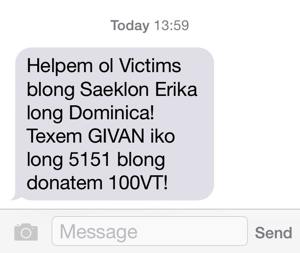 Help the victims of cyclone Erika in Dominica. Text GIVAN to 5151 to donate 100VT! These people have barely got their island rebuilt: houses still have tarpaulins over the roofs because the special type of palm trees that are needed to repair the roofs haven’t yet grown back, kids are being taught in tents because the school was destroyed, in the southern islands fruit is only just back on the menu as the fruit trees were destroyed, and yet they have such open hearts and hands that they are reaching out to support people far away who have gone through something similar to their experience. When we had to wait in offices I loved translating the posters, here’s a reassuring one from customs: 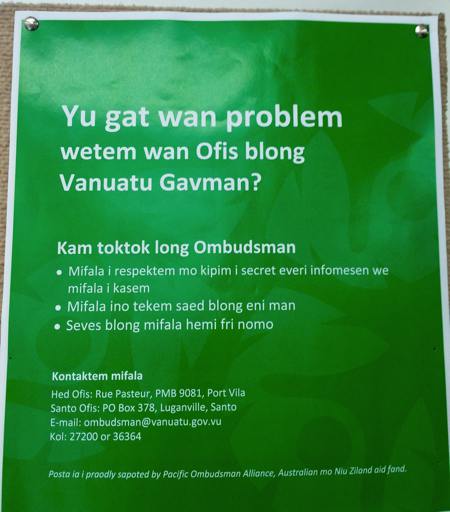 You have a problem with an office of the Vanuatu Government? Come and talk with the Ombudsman.
And although the bigger supermarkets have lots of imported Australian and French foods local products are on the shelves as well. This label from a tin of tuna comes from The Solomon Islands, where we’ll be heading after Vanuatu, and has an even more reassuring message on it:  Read it out loud - you’ll get it! |